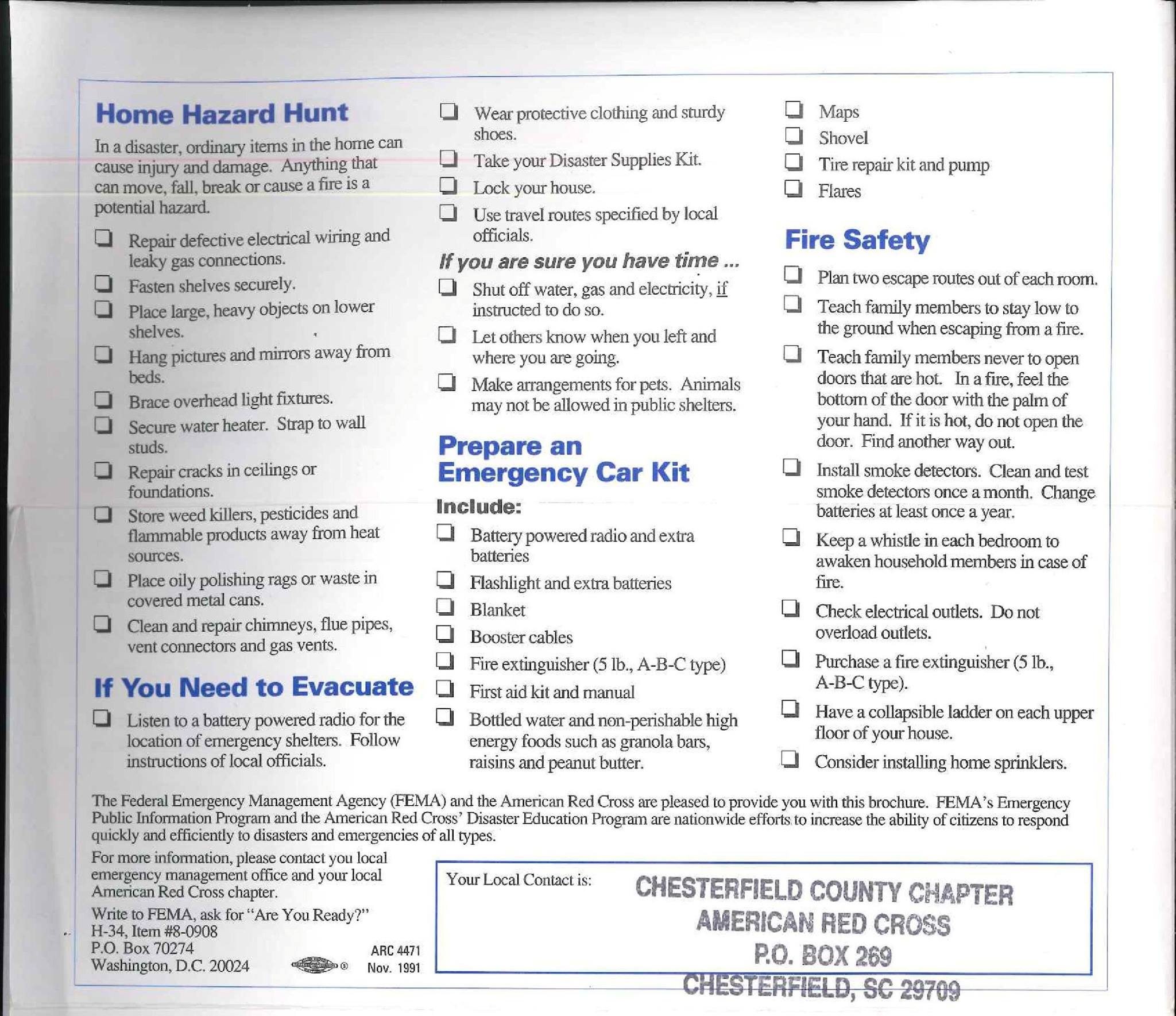

- #HURRICANE PREPAREDNESS CHECKLIST HOW TO#
- #HURRICANE PREPAREDNESS CHECKLIST TV#
Most important – keep storm debris separate from your regular household garbage and recycling.Bring in your recycling and trash carts.Secure all debris and do not place materials of any kind at the curb during a Watch or Warning period.Do not begin construction projects that produce debris unless absolutely necessary to protect life and property.Mass cutting produces a burden on the normal collection process Do not cut down trees and do not do any major yard work.This is the time to go through your home, yard, and garage looking for any household hazardous waste such as old paint, gasoline, oil, pool chemicals, batteries, fluorescent bulbs, outdated electronics and bring them to one of Collier County's convenient Recycling Drop Off CentersĪfter a storm is named or a hurricane watch/warning has been issued:.A total of ten 45-gallon containers or ten bundles of yard waste may be placed curbside).YARD WASTE IN PLASTIC BAGS WILL NOT BE COLLECTED. Limbs cannot be more than four feet in length and four inches in diameter.

Yard waste must be containerized in an extra yard waste container, paper lawn/leaf bag, or bundled (Cans and bundles cannot weigh more than 50 pounds each.
Place trimmings at the curb on your regular collection day. Thin foliage so wind can blow freely through branches, decreasing chances the plant will become uprooted during a storm. Cut back any trees or branches that contact your house, pool cage, shed or other buildings. If emergency authorities order you to leave or if your home is damaged, you may need to go to a shelter or a neighbor’s house. Stay in a room with no windows, or go inside a closet. Stay away from windows-you could get hurt by pieces of broken glass or flying debris during a storm. Sometimes, weather gets calm in the middle of a storm but then quickly gets bad again. Wait until you hear or see an official message that the hurricane is over. #HURRICANE PREPAREDNESS CHECKLIST TV#
Listen to the radio or TV for updates on the hurricane. Keep your emergency supply kit in a place you can easily access. Learn more about evacuating with your pet. Contact your local emergency management office and ask if they offer accommodations for owners and their pets. Never drive through flooded areas-cars and other vehicles can be swept away or may stall in just 6 inches of moving water. Other routes might be blocked or flooded. 
Follow the roads that emergency workers recommend even if there’s traffic.If you have time, turn off the gas, electricity, and water. Grab your emergency supply kit and only take what you really need with you (cell phone, chargers, medicines, identification like a passport or license, and cash).If driving conditions are dangerous, staying at home might be safer than leaving. Staying home to protect your property is not worth risking your health and safety. Even sturdy, well-built houses may not hold up against a hurricane. If a hurricane is coming, you may hear an order from authorities to evacuate (leave your home). Īlways listen to authorities regarding whether you should evacuate or stay at home.
#HURRICANE PREPAREDNESS CHECKLIST HOW TO#
Make sure your family knows where to find it and how to use it! Read the National Fire Protection Association’s tips for using fire extinguishers external icon.
Important documents, including medical documents, wills, passports, and personal identification. Emergency power sources such as flashlights (don’t forget extra batteries). That’s why it’s best to be prepared-stock up on everything you might need now. You also may not be able to drive because of damage to your car. Remember that a hurricane could cut off your power and water supply. Local animal shelters may be able to offer advice on what to do with your pets if you are asked to evacuate your home.ĭuring and after a hurricane, you may need supplies to keep your family safe and healthy. Pet owners: Pre-identify shelters, a pet-friendly hotel, or an out-of-town friend or relative where you can take your pets in an evacuation. If shelter locations in your area have not been identified, learn how to find them in the event of a storm external icon. Locate the nearest shelter and different routes you can take to get there from your home. Write down emergency phone numbers and keep them on the refrigerator or near every phone in your house. Before hurricane season each year, make sure you and your family are prepared by planning ahead. Hurricane season starts on May 15 in the north Pacific and June 1 in the Atlantic and the Caribbean.







 0 kommentar(er)
0 kommentar(er)
